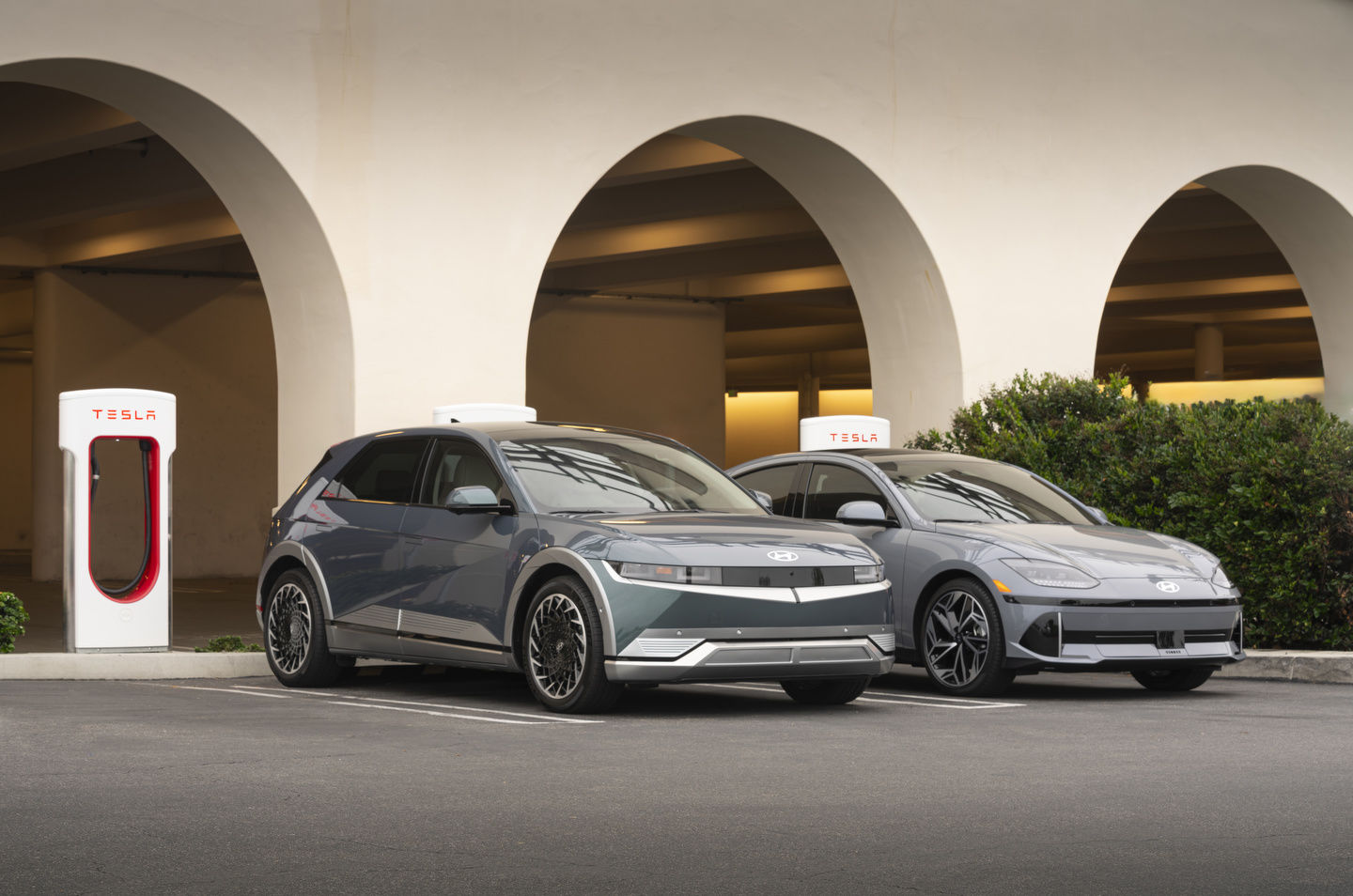Hyundai Embraces North American Charging Standard for Enhanced EV Experience
October 13 2023,

Hyundai Motor North America has revealed plans to integrate the North American Charging Standard (NACS) ports into its electric vehicles (EVs) for the U.S. and Canadian markets. Starting in the fourth quarter of 2024, all new or revamped Hyundai EVs in the United States will feature NACS ports, with Canada following suit in the first half of 2025. José Muñoz, the president and global COO of Hyundai Motor Company, highlighted that this initiative marks a significant step in Hyundai's ongoing efforts to offer superior EV experiences.
The adoption of NACS ports will grant Hyundai EVs access to Tesla's extensive Supercharger network, which comprises over 12,000 stations across the United States, Canada, and Mexico. This effectively doubles the DC fast-charging options available to Hyundai EV owners. The collaboration also aligns with Hyundai's joint venture to establish a new high-powered charging network featuring at least 30,000 stations across North America.
Charging Infrastructure and Future Plans
Tesla is equally committed to this partnership, aiming to expand its Supercharger network to support Hyundai's advanced Electric-Global Modular Platform (E-GMP) vehicles. These include models like the IONIQ 5 and IONIQ 6, as well as upcoming EV releases. Rebecca Tinucci, Tesla's senior director of Charging, expressed enthusiasm about Hyundai joining the NACS, stating it aligns with Tesla's mission to expedite the global transition to sustainable energy.
For existing Hyundai EV owners using the current CCS ports, an adapter will be made available starting in Q1 2025 to enable access to Tesla's Supercharging Network. Hyundai will also offer adapters for NACS-equipped vehicles to charge at CCS chargers. This move is part of Hyundai's broader strategy to collaborate with six leading global automakers in developing a high-powered North American charging network. The first stations in this new network are expected to open in the U.S. by the summer of 2024, with Canadian stations to follow.
